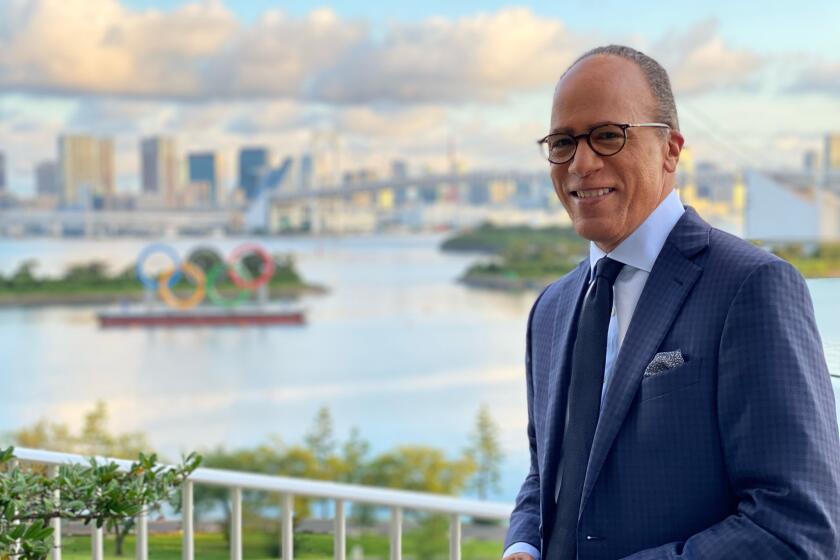Clinton, His Lawyers Seek to Avoid Surprises From Starr
- Share via
WASHINGTON — When David E. Kendall, President Clinton’s personal lawyer, was a young attorney working for the NAACP Legal Defense Fund 20 years ago, he took on the case of a Florida death row inmate.
Kendall’s skeptical pro bono client asked him how, in a possible new trial, he would handle things differently from the lawyers who had preceded him.
“I can tell you one thing,” Kendall replied, according to a book on death penalty cases. “I’d work with you for days getting your testimony straight. We wouldn’t just set you up there and see what came out of your mouth.”
As it happened, John Spenkelink never got a new trial and was executed in 1978.
While Kendall’s current client does not face the death penalty, the lawyer’s challenge in preparing Clinton for his historic grand jury testimony Monday is to spare the president from potential political demise.
Two sources have told The Times that Kendall, along with Robert S. Bennett, the president’s lawyer in the Paula Corbin Jones sexual harassment lawsuit, has advised Clinton that repeating his flat denial of a sexual relationship with Monica S. Lewinsky could be fraught with peril.
Their fear, according to these sources, is that Clinton’s testimony could give independent counsel Kenneth W. Starr evidence of grand jury perjury, which would be stronger legal grounds for impeachment than lying in a civil lawsuit.
Kendall and Bennett have told associates that, while they are uncertain of the truth of the matter, they would give the same warning against answering specific questions under oath to any other client who is the target of a federal prosecutor--on grounds that the prosecutor may try to trip them up. Both declined to comment on their positions or advice.
No outsiders are privy to Clinton’s briefing sessions, which are mainly handled by Kendall and an associate, Nicole K. Seligman. Mickey Kantor, the private attorney, former Commerce secretary and ex-campaign official who continues to advise the president, and First Lady Hillary Rodham Clinton, also attend most of the sessions and contribute ideas.
“It’s very much a work in process,” one source said of the briefings and the president’s testimony plan. In addition, the fact that Hollywood producer Harry Thomason, a longtime Clinton friend, has remained in Washington following his own grand jury appearance Tuesday could indicate that Clinton may be considering making a public statement.
*
After several hours with his lawyers Saturday, Clinton, in shorts and sneakers, stretched his legs with a jog on the South Lawn and tossed a ball for his dog, Buddy. Later, he went to dinner in Georgetown with an old friend, returning in a few hours to say he had dined with Vernon E. Jordan Jr.
“Prepping your client is extremely important if he’s a critical player in an investigation, as President Clinton is,” remarked Randall J. Turk, a lawyer who has represented many political figures.
But Turk and others said that political figures often can be difficult clients to manage, preferring to walk into the teeth of a grand jury session out of fear that refusing to testify could harm their public careers.
In Clinton’s case, Kendall presumably is reviewing with the president all of his previous statements as well as what Kendall has learned about the previous grand jury testimony of Secret Service witnesses; Betty Currie, his personal secretary; and Jordan, according to other lawyers.
Because Clinton’s lawyers are part of a “joint defense agreement” with attorneys who represented White House-friendly witnesses, Kendall has had access to key details of what they told grand jurors. “This should be of immense help to the president, and it’s a benefit that most targets of an investigation do not have,” one attorney remarked.
Currie and Lewinsky are said to have testified that Lewinsky made about three dozen visits to the White House after she was transferred to a Pentagon job in April 1996 and that she returned gifts she had received from the president to Currie after learning that Jones’ lawyers planned to subpoena them.
“In briefing the president, you would ask him, ‘How do you intend to explain those visits as well as Lewinsky’s return of the gifts?’ ” one former Justice Department official speculated.
“Then, Kendall might say, ‘Well, that’s an explanation. But you might want to phrase it a little differently while keeping the same thought.’ You would always insist that your client tell the truth and not get hung up on a perjury charge,” the ex-official added.
Turk noted that “to avoid your client being surprised by prosecutors, you want to collect all the documents and facts that you can, show them to your witness and ask probing questions in anticipation of the kinds of tough questions the prosecutors are going to ask.”
Myles H. Malman, a former Miami federal prosecutor who helped convict Panamanian dictator Manuel A. Noriega, recommends “going over everything the president has said publicly” or in the Jones case, including his finger-wagging statement that he “did not have sexual relations with that woman, Miss Lewinsky” and “never told anyone to lie.”
In addition to having access to a transcript of the president’s deposition in the Jones case, which has been dismissed, Kendall has obtained permission to view a videotape of that Jan. 17 session.
More to Read
Get the L.A. Times Politics newsletter
Deeply reported insights into legislation, politics and policy from Sacramento, Washington and beyond. In your inbox twice per week.
You may occasionally receive promotional content from the Los Angeles Times.










